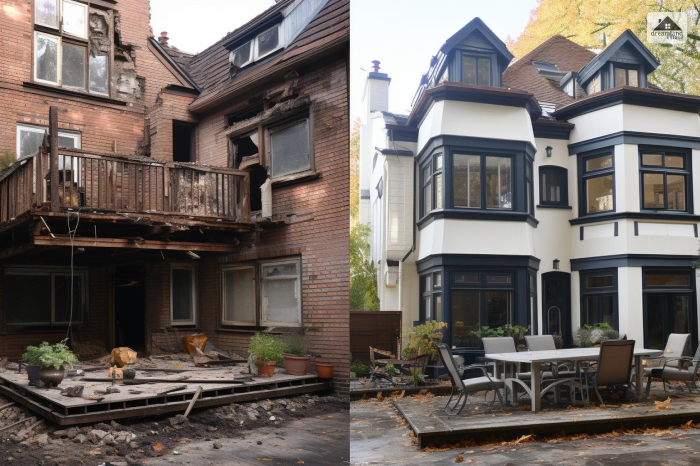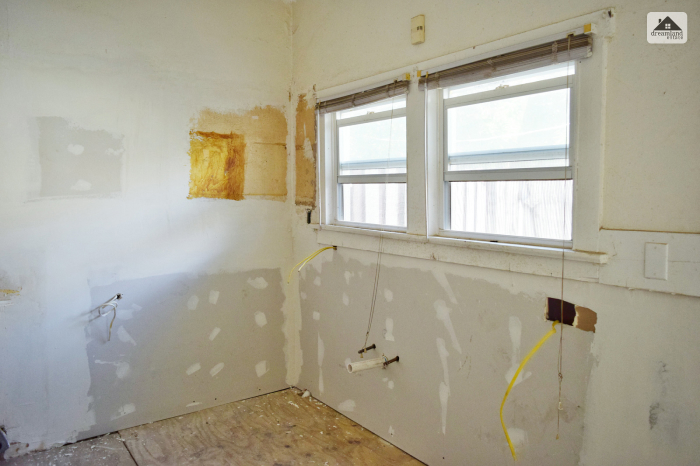Breaking Down The 70% Rule: Your Ultimate Secret For House Flipping

What is the 70 rule in house flipping? If you are new to real estate investment, you need to know how much you should offer on a property.
The 70% rule in the real estate industry gives new investors an easy guideline. This article will help you learn the 70% rule for house flipping. You don’t want to get in a position where you overbid a property. So, it is vital to get an overall idea about “how to get into house flipping?”
You can overwhelmingly make or lose your profits when buying a property, depending on the amount that you pay. The insights you get here will help you make informed decisions in the industry.
House Flipping: A General Overview

House Flipping is complex and requires a substantial amount of money. Not only will you have to make an initial investment into your property, but you will also need to invest enough time, cash, and sweat to make necessary improvements with time.
However, this investment is worth it if you can get a lot of capital while selling the property. But this factor only depends on your ability to sell the property for a significant profit. Apart from that, this part is also a tricky one.
Furthermore, with house flipping, you will also need to do a lot of guesswork. For example, you will need to consider factors like cost, unexpected expenses, and selling price.
This is where you need to consider the 70% rule of house flipping. With the help of this rule, you can have a better estimate of how much you can spend on a flipping process. Also, you will learn how much you will earn on the sale.
How Does House Flipping Work?
According to Investopedia, “Flipping is a real estate investment strategy where an investor purchases a property with the intention of selling it for a profit rather than using it. Investors who flip properties concentrate on the purchase and subsequent resale of one or a group of properties. Many investors attempt to generate a steady flow of income by engaging in frequent flips.”
Flippers are those individuals who purchase and do renovations to properties. After that, they put these properties into the real estate market.
The focus is to make a profit in the process. However, a successful house flipping strategy requires extensive knowledge of the real estate market. Apart from that, it requires a lot of planning and patient steps.
The best way to perform house flipping is to buy a house at a low price and sell it at a higher price. However, instead of adopting a buy-and-hold strategy, which many people do, a better option is to complete the transaction as fast as possible.
This is because you insert a time limitation into the process. Hence, you lower the time period to keep your capital at risk. Basically, it would help if you focused on the speed of the sale rather than concentrating on maximum profit. This is because each day that you do not sell the property is costing you more on the mortgage, property taxes, utilities, insurance, and other related costs.
What Is The 70 Rule In House Flipping?

What is the 70% Rule in House Flipping? This has to be answered first. As you think about the maximum price to pay for a property, the 70% real estate rule states that you shouldn’t pay over 70% of the ARV (After Repair Value) less the repair costs.
The next thing to understand here is the meaning of ARV in real estate investment. It refers to the estimated value of a property after completing all the repairs.
Understand The Overall Concept
Suppose the ARV value of a property is $100,000, and the required cost of repair is $25,000. According to this rule, the maximum that an investor should pay for such a property is $45,000. 70% of $100,000 is $70,000 minus $25,000, and you will get $45,000. When you chop out the 30%, you will leave room for both your miscellaneous costs, such as soft costs, and your profits.
With this information, you now have a clear picture of what is the 70% rule in house flipping. However, this rule for flipping a house is far from being written in stone. It is a misnomer word rule and a loose guideline that offers a fast shorthand for reference framing.
Applications of the 70% Rule in Real Estate:

The 70% Rule is highly beneficial in house flipping as it will help you to evaluate if a potential deal is a correct ballpark instantly. However, it would help if you did not make all the offers based on the 70% rule on house flipping.
Nevertheless, it is a simple framework that will help you evaluate prospective deals. What makes the 70% rule in house flipping a practical guideline is its element of simplicity.
It allows you to ignore all the other things apart from the two most important numbers when looking at a deal for the first time. These include the repair costs and the ARV.
If you make an accurate forecast of these numbers, you eliminate the chances of losing your money on a deal. However, if you get the repair estimate costs and ARV wrong, you can lose tens or even thousands of dollars quickly.
Make sure you get these numbers right before you determine the amount you will pay for your property. The next thing you need to do is analyze the comps in the market in a lot of detail.
It would help if you also got the opinion of the Realtor on the ARV. If the comps mirror the said property less closely, you should consider the ARV estimate less accurate.
Based on the estimated repair costs and ARV, you may work backward to determine the ideal offer price. How much you offer will determine your profits from the real estate deal.
All these are really some essential pointers that you need to keep in mind at any cost when you are planning on “how to start your own house flipping business?”
The Mathematics Behind the House Flipping Deal:
for knowing the path of “how to start a house flipping business?” It is good to compare how the 70% Rule holds up in comparison to the other detailed analysis. It is a more detailed deal and ROI analysis.
The investor includes expenses such as the carrying costs, settlement costs, and other soft costs that are associated with an investment in real estate. Experienced real estate investors also know how to budget for unforeseen repair costs so that they don’t come by surprise.
Is the 70% Rule in House Flipping Accurate?

The 70% rule in house flipping makes shorthand easy and fast, and it should only remain a starting point. After a more detailed expenditure analysis, you will discover that this rule tends to fall below the mark.
In real-life investment in real estate, you may only be willing to invest 60% of the ARV, less the cost of repairs. In other cases, you may offer 75% or even 80%. Here are some of the factors that can influence how much you can provide in practice;
The Market Price Point
In low-end property markets, you will get into additional risks and expenses that will affect your investment strategy.
For instance, you can have a high risk of stolen equipment and appliances, vandalism, and break-ins. You can lose a lot of money in crime-related activities when you invest in low-end real estate markets.
Some settlement costs are also fixed and don’t depend on the sales or purchase price. The lender can charge a minimum fee of $3,000 or three points, whichever is higher. Most of the title-related charges are fixed and don’t depend on the sales price.
That implies that as a percentage of the deal, they will be more than the expensive deals. On the contrary, high-end deals usually come with fewer expenses and headaches.
Exit Strategy
The 70% rule is a helpful shorthand to flip houses, but it is less applicable to other exit strategies. Rental investors may only innovate the building sparingly, and they will hold the property in the long run.
The reason is that their primary goal is cash flow and not a one-time payout based on ARV. Their calculations typically resonate around the annual income and yield.
Similarly, in case you are wholesaling deals, their numbers may appear different to you.
ARV and repair costs are still crucial, but in case you have a firm purchase list and understand that your buyers may pay higher than the contract price, the rule is less important than knowing your market and buyers.
Your Target Profits And Labor
Some deals will require you to do more work than others. We have investors who want to earn more profit for every deal than others.
If you come across a deal that involves a quick turnaround time and minimal work, you may accept a lower profit margin by capitalizing on the high velocity of money and paying higher than the 70% rule dictates.
One Reason You Should Never Break The 70% Rule On House Flipping
As we have mentioned above, there are so many reasons to buy lower or higher than the 70% rule suggests. However, it would help if you never broke this rule on the assumption of appreciation.
The prices of real estate don’t always rise. An excellent example is the 2008 housing crisis, during which the value of real estate dropped. It is a crucial point to consider as you seek to understand the 70% rule for house flipping.
Pitfalls of House Flipping
There are many pitfalls to house flipping that you need to understand. Here, the profits that you make come from the price appreciation of the property.
Meanwhile, this price appreciation comes from the hot real estate market, where prices are constantly on the rise. On the other hand, the price appreciation might be due to capital improvements in the property.
Hence, you need to limit your financial risk with proper planning. Therefore, refrain from paying a lot for a home.
Apart from that, you also need to make sure that you are aware of all the costs of repairs and upgrades before you buy. Thereby, you can get an ideal price for the information.
FAQs
I hope that from the above discussion, you get the necessary idea that you were searching for the 70% rule in house flipping. Still, when you are willing to start your career in real estate or house flipping, you might have several doubts in your mind.
Feel free to reach out to me if you have any queries or doubts. I will come up with the solutions as soon as possible. But till then, here are some common questions that might cover up some of your doubts.
Q1. How Do You Calculate A 70% Rule?
It is straightforward to use the 70% rule. For evaluating the maximum price that you are required to pay for a specific property, you need to multiply the ARV of the property by 0.7. For example, if you are estimating that the ARV or property will be $600,000, it means you should never spend over $420,000.
Q2. What Is The 70/30 Rule In House Flipping?
“What is the 70 rule in house flipping?” It is also known as the 70/30 rule. Here, you can consider the 70% rule as a rule of thumb or a barometer. As per the 70% rule, a property investor should not pay more than 70% of the ARV or after repair value or of the resale of their specific target property. This will not include the necessary repairs, which are known as ERC or estimated repair costs.
Q3. What Is The 70% Rule In Real Estate?
The 70% rule assists the home flippers in evaluating the maximum price that should be paid for an investment property. Generally, they should not spend over 70% of the after-repair value of the home apart from the renovating cost of the property.
Q4. What Is A Good Return On A House Flip?
The answer to this varies on the basis of how the market is actually performing. In the first quarter of 2020, for house flipping, the average gross profit was around $62,300. It equates to a 36.7% average percentage return. From the first quarter of 2019, it is down about 3%.
Conclusion
The good thing about the 70% rule is that it directly cuts to the most critical numbers in any house-flipping deal. It forces you to pay very close attention to these vital numbers.
With all this information, you have a clear understanding of what is the 70% rule in house flipping and when to apply it.
It would help if you had a more detailed expenditure analysis as you make an offer. This knowledge will help you to make more informed decisions when planning to invest in real estate.











Leave A Reply